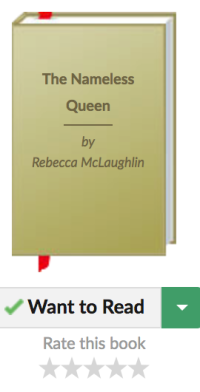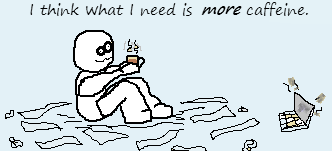I finally got on the bandwagon and went to see Jurassic World. I’d seen all the others, but not since they gave me nightmares as a child.
I thoroughly enjoyed the movie for several reasons. Chris Pratt. Dinosaurs. Theme Park of dinosaurs just begged for mass casualties. FRICKIN’ DINOSAURS, MAN.
What I enjoyed even more was how much sense the story made. For me, you can have as much gore and special effects as you want, but if you don’t have good storytelling, I ain’t buying it.
These important story telling devices that were used in Jurassic World are:
- Threads
- Throwbacks
- Comedic Relief
- Second Glance Information
- Details and Research
- Expectations and Cliches
- Loose Threads
.
The Threads
(“threads” in a story are story-lines, objects, and concepts that make recurring appearances throughout a story, but don’t necessarily have a direct impact on the plot. Threads can be anything, like a character searching for a Twinkie, a Pizza Planet truck, and rushing for an arbitrary deadline.)
I realized that I was in love with the storytelling when my friend mentioned her favorite part of the movie (SPOILER!): when the giant-fish-monster made his final appearance, and the T-Rex just ambles off like he knows he’s the biggest bad ass ever.
I responded with: “I especially like how they introduced the fish-dinosaur early on, then brought him back for the long dramatic death scene of that British nanny chick so you wouldn’t forget about him.”
My friend just kind of gave me this weird look like, “I see your point, but you’re being weird about it.”
.
Throwbacks
(Along the same lines as threads, throwbacks are when a story references what came first (either previous books/movies or a nod to the classics).)
Jurassic World had a lot of good throwbacks. From the classic theme song opening the movie to the original set and props from the first movie. Throwbacks, like threads, are fun and can provide perspective and humor without endangering the plot. Just think of the feeling you get when you hear that theme song or the pointing and prodding when you saw those doors with that icon. The smile when you saw the nerd wearing the original Park T-Shirt.
Just like the Pizza Planet truck in Pixar movies, throwbacks let the readers and viewers know that you’re paying attention. It’s a way for you to reward them for paying attention too.
.
Comedic Relief
(things that make you laugh in the middle of an otherwise terrible, dramatic, or scary/sad scene)
Humans are complicated creatures, just like dinosaurs. We don’t feel just one emotion, and we need variety. In Jurassic World, there were a lot of chuckle moments. In a movie about monsters and death and fear, these comedic moments are what keeps us entertained while we’re being awed and jump-scared.
Like when Nick from New Girl (the nerdy computer guy with the throwback Park T-shirt) tries to kiss that girl, and she totally has a boyfriend. And when the Aunt says that there’s no way the kids are telling their mom the details of the adventure.
These moments provide balance in a narrative. Tonal balance can be tricky in real life AND in stories. Just think back to a time when someone said a joke, and the whole atmosphere just got sticky with awkwardness. Or when someone says something sobering, and the room goes from smiles to grimaces.
Tonal shift and balance can make or break a scene.
Also: Archaeornithomimus.
.
On Second Glance
This goes along with rewarding the reader with throwbacks and threads. In Jurassic World, there’s a lot you might miss the first time you watch it. But if you slow it down or just watch it again, you pick up on all the nuances that really flesh out the story and the scenes.
When the old guy runs from the dinosaurs, but takes careful precautions to protect his double-fisted margaritas. I caught that the first time, and I almost busted out laughing, because I knew it was an under-the-radar joke. It shows the writers and storytellers are paying attention and, again, rewards viewers/readers for doing the same.
It’s the same moment when you read a book again and this time you catch all the foreshadowing. Or watching a movie for the second time and you see a funny face a background character is making.
You want to make sure these subtle background elements aren’t stealing the limelight. You wouldn’t want your readers to pick up on those cues and totally spoil the plot twist. You don’t want the background noise to drown out the song.
.
Details and Research
There’s something wonderful about saying, “Yeah, that would totally be true.” These things can be small and large. The amalgamation of genetic code resulting in varying expressions of animal behavior. I would have liked to see more unique traits or cross-overs instead of cherry-picking behaviors and abilities like shopping for superpowers.
I liked the balloon with streamer dinosaur legs (I want one!) and the informational exhibits. The honest approach to the fact that 20 years have passed. The respect paid to the question of how exactly would a multimillion dollar island theme park keep interest and keep it’s popularity?
It doesn’t have to stand up to scientific and critical acclaim (it’s not an actual scientific proposal). It just has to feel right enough to get the reader on board. In the end, almost all science fiction is fiction. It’s based on untruths and assumptions and imagination. But it’s the details and the research that make it feel real. That said, the more flaws logic and reasoning and science has, the more complaints will be filed. The more acclaim a story gets, the more scrutiny will befall it.
.
Expectations and Cliches
Every story has expectations and cliches. Sometimes, subverting these cliches can be very powerful. Sometimes, though, we just want what’s familiar.
In Jurassic World, we get some of the classic cliches. We get uptight boss lady and down-to-earth old flame. We get the doofus jerk character who dies exactly the way we dreamed he would. We get the budding romance, complete with banter and wit. We get the eccentric billionaire and the “we can’t evacuate because that would make us look bad,” and the “I’m doing this with or without you.” These things aren’t inherently bad, and they aren’t inherently good either. They’re just familiar. Sometimes familiar is good—necessary even. If you make something too bizarre, it becomes unrelatable.
Being able to intentionally avoid cliches in a way that feels original is important to generating a new experience for viewers/readers. Like when the girl turns around and saves the guy (though even that itself is becoming an old hat turn), and when the nerdy computer guy goes for the kiss and is turned down. We all thought at some point that Aunt really should just remove the high heels, but then she’d be running around barefoot through the forest and park of shattered glass, and that feels like a worse idea. These things make us think, though, which is good.
.
Loose Threads
As satisfying as it is to have all the plot threads tied up at the end, it can be just as important to leave a few threads dangling. Don’t confuse this with unresolved plot issues. If you present viewers/readers with a problem and don’t give us some sort of resolution, you’re going to get backlash.
But what the Jurassic Park movies do best is leave that dangling thread, enticing you to keep going, but leaving you satisfied with the movie. We saw it with the stolen dinosaur egg, the pterodactyls flying into the distance and, in Jurassic World, the research the military/doctor absconded with.
That feeling that the story goes on is vital. Just like life, there is no way to contain everything between the covers of a book or the the beginning and the end. That sense of continuity makes the story feel real to us. It leaves us wondering, wishing, and imagining. That’s what stories are good for.


